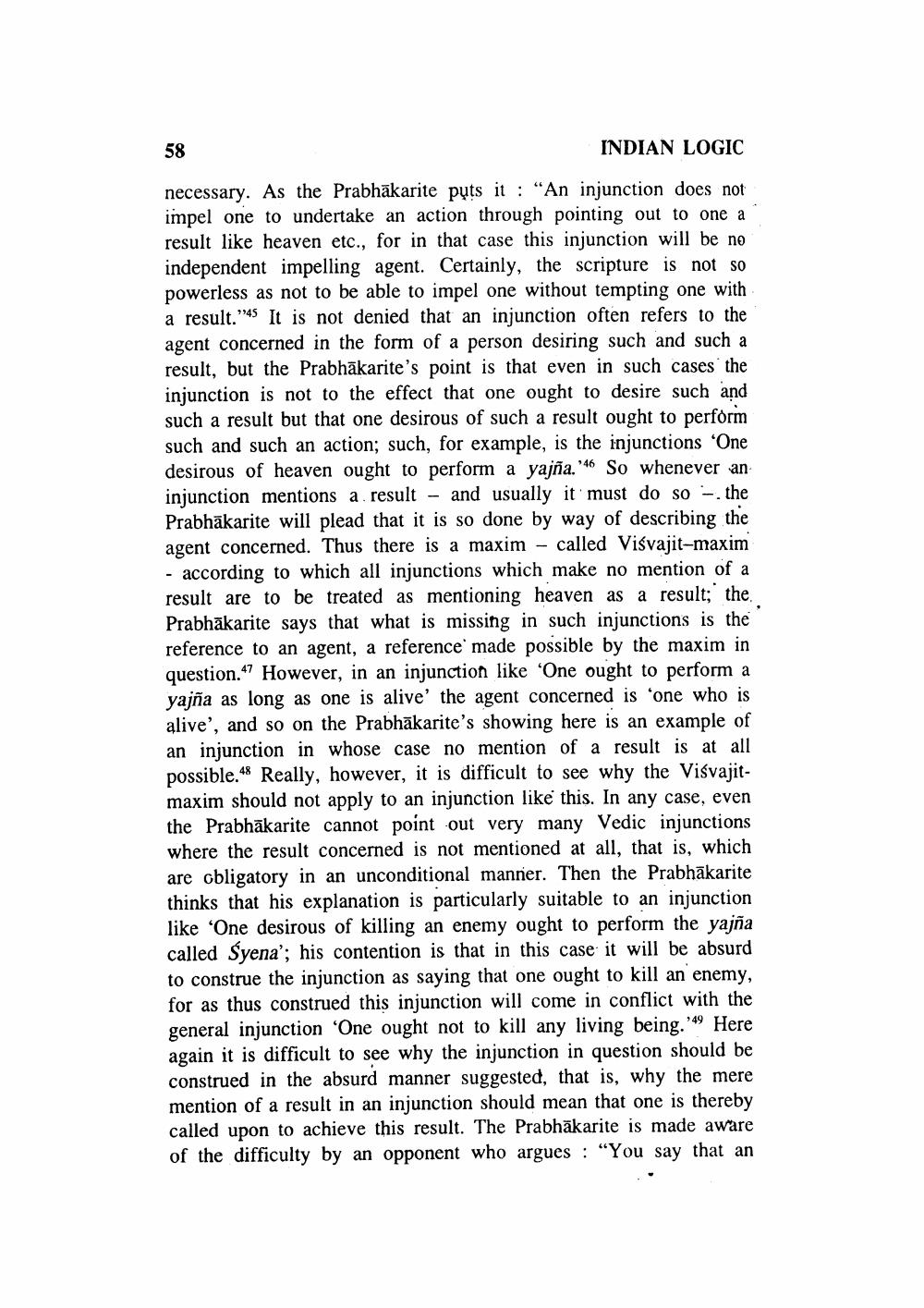________________
58
INDIAN LOGIC
necessary. As the Prabhākarite pụts it : “An injunction does not impel one to undertake an action through pointing out to one a result like heaven etc., for in that case this injunction will be no independent impelling agent. Certainly, the scripture is not so powerless as not to be able to impel one without tempting one with a result."45 It is not denied that an injunction often refers to the agent concerned in the form of a person desiring such and such a result, but the Prabhākarite's point is that even in such cases the injunction is not to the effect that one ought to desire such and such a result but that one desirous of such a result ought to perform such and such an action; such, for example, is the injunctions 'One desirous of heaven ought to perform a yajña.'46 So whenever an injunction mentions a result - and usually it must do so - the Prabhākarite will plead that it is so done by way of describing the agent concerned. Thus there is a maxim - called Visvajit-maxim - according to which all injunctions which make no mention of a result are to be treated as mentioning heaven as a result; the. Prabhākarite says that what is missing in such injunctions is the reference to an agent, a reference made possible by the maxim in question. However, in an injunction like 'One ought to perform a yajña as long as one is alive' the agent concerned is one who is alive', and so on the Prabhākarite's showing here is an example of an injunction in whose case no mention of a result is at all possible.48 Really, however, it is difficult to see why the Visvajitmaxim should not apply to an injunction like this. In any case, even the Prabhākarite cannot point out very many Vedic injunctions where the result concerned is not mentioned at all, that is, which are obligatory in an unconditional manner. Then the Prabhākarite thinks that his explanation is particularly suitable to an injunction like 'One desirous of killing an enemy ought to perform the yajña called Syena'; his contention is that in this case it will be absurd to construe the injunction as saying that one ought to kill an enemy, for as thus construed this injunction will come in conflict with the general injunction 'One ought not to kill any living being.49 Here again it is difficult to see why the injunction in question should be construed in the absurd manner suggested, that is, why the mere mention of a result in an injunction should mean that one is thereby called upon to achieve this result. The Prabhākarite is made aware of the difficulty by an opponent who argues : "You say that an




